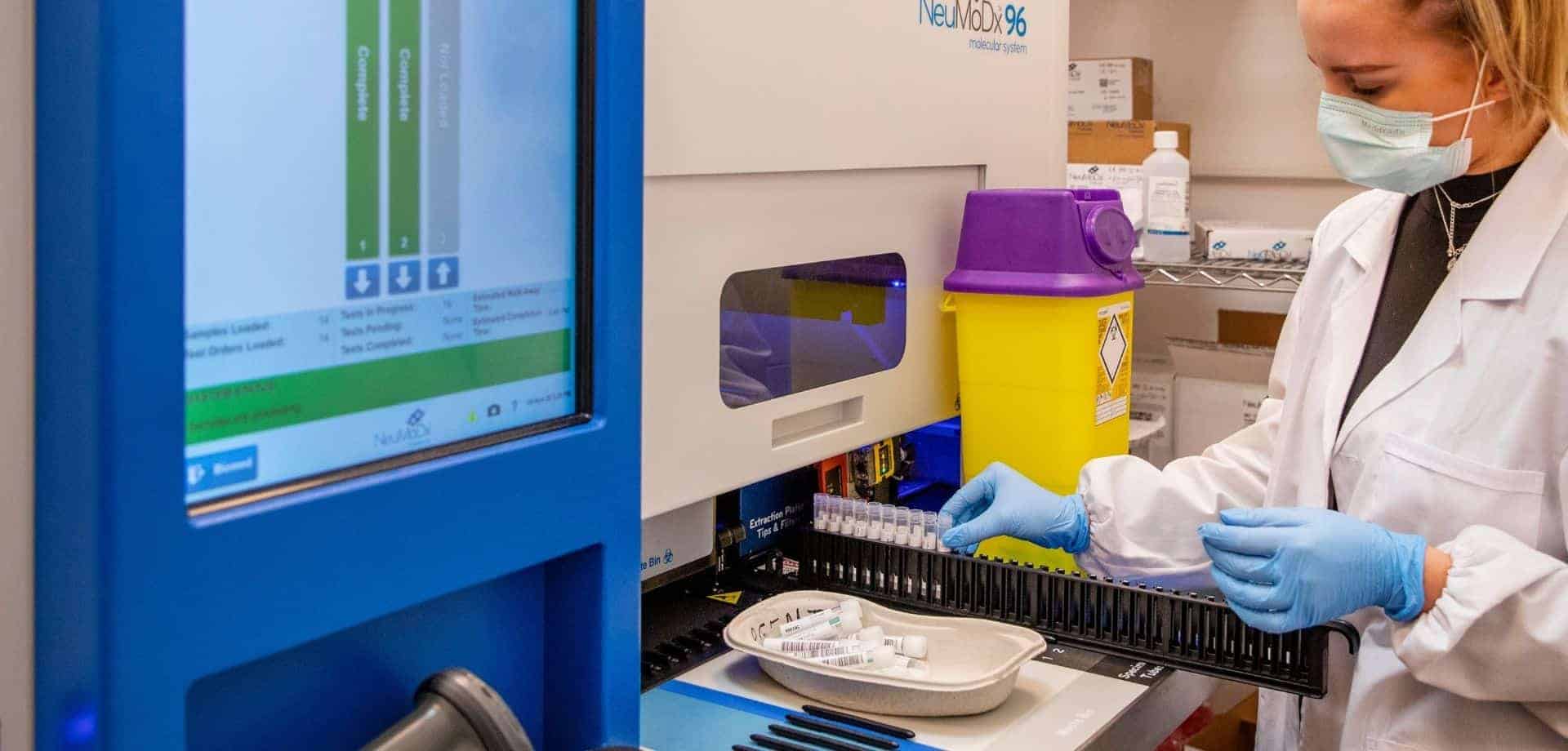Tag: Coronavirus
Trusted London clinic now offers private Covid-19 vaccines.
As a trusted name in healthcare for the past three decades, Fleet St. Clinic are proud to announce the expansion of our services to include private Covid-19 vaccination for individuals and businesses alike. We offer the most up-to-date Pfizer Covid vaccines at a cost of £98 per dose.
Covid Vaccinations for Individuals
Until now, Covid vaccination has only been available through the NHS, which has rightly prioritised access those most likely to suffer complications. However, coronavirus infection remains a hazard for everyone, and many other people also wish to be protected. Protection can be especially important for people keen to avoid illness abroad, for people in key occupations, and for those in close contact with vulnerable friends and relatives.
Covid vaccination will now be available year-round for all those who would like to be protected, including those who have not been eligible for NHS care. Whether you need a booster vaccination or would like to consider having the Covid vaccine for the first time, we can help.
Book your private covid vaccination here.
Covid Vaccinations for Businesses
Fleet St. Clinic has provided large-scale flu vaccination initiatives for businesses across the United Kingdom since 1995. These programmes are now being expanded to include long-awaited vaccination against Covid-19. Many of our clients have been keen to protect those in business-critical roles as well as to protect employee health and wellbeing more generally.
Workplace vaccination programmes are offered as a straightforward and fully-managed service, enabling employees to access vaccinations they might otherwise find challenging to obtain. Introducing vaccination against Covid-19 reflects our longstanding commitment to keeping companies and their employees healthy.
Book your private covid vaccination workplace programme here.
Fleet St. Clinic Medical Director, Dr Richard Dawood commented:
“We are delighted to be one of the first medical practices in the UK to offer Covid-19 vaccinations outside the NHS. Now that Covid has transitioned from being a pandemic to an endemic disease, it is important that vaccination against Covid should become as “normal” and accessible as vaccination against other infectious diseases.
As a private, multi-disciplinary medical practice, the Fleet St. Clinic has specialised in vaccines for three decades, delivering hundreds of thousands of doses. Through the pandemic, most of our doctors and nurses volunteered to deliver Covid-19 vaccines in the NHS. We are especially pleased that being vaccinated against Covid-19 can now be a matter of choice for individuals and businesses alike, no longer restricted to those in the most vulnerable groups.”
Pre-Book Your Covid Vaccine
Covid vaccination will become available in March, but you can pre-book your own Covid vaccine or a Workplace vaccination programme, from today. Fill in our online form and we will be in touch with more information.
Pre-book your private covid vaccination programme here.
RELATED SERVICES AVAILABLE AT FLEET ST. CLINIC
Full Respiratory Panel PCR Test
With over 9 million employees put on the furlough scheme at the peak of the pandemic, and many still on the scheme 12 months later, it’s no wonder that there’s an increase in anxiety about returning back to the workplace.
With some employees seeming less than enthusiastic about returning to the workplace, it may be concerning for an employer about how they address this anxiety and what to do if faced with this situation.
From the many Occupational Health consultations we’ve had this past year, we’ve learnt first-hand and also through our clients about the transition back into the workplace for both employees and employers. We’ve been able to get a good picture of the main issues people have been facing and what the underlying cause for the anxiety can be.
As with any anxiety, the cause can be a singular concern or a combination of concerns and when investigating further, each person should be treated as an individual to fully understand their concerns.
A discussion with an empathetic leader is a great place to start. Sometimes, however, a review by an independent occupational health clinician from a SEQOHS-accredited clinic, like Fleet Street Clinic, is required to work out if the employee is fit to continue working, if any adaptations for working are suggested and some circumstances, what medical help is required.
Here are some of the main concerns and issues that have come up time and time again from both employee and employer and how these can be mitigated:
Lack of confidence:
Many furloughed returnees may come back wondering if they can still do their job as well as before, which can manifest into a lack of confidence. With not being at work for a long period of time, certain skill sets may have started to feel ‘rusty’. Worries and concerns about returning to full-time hours from the get go, and having to perform at the same level they were at before they went on furlough are just some examples.
What can help with this?
Early engagement between the employer and the returning employee is important to discuss any specific anxieties and to work out a ‘return plan’ which can really make a difference. ACAS advises employers to think about those returning from furlough as if they have been on maternity or long term sick leave. Using similar ‘check ins’ (as you would for maternity/ sick leave) prior to their return to work allows for real-time conversations to cover the practicalities, potentially a staggered return to build up confidence, as well as an opportunity to discuss any anxieties and concerns.
Concerns over workplace safety:
Two of the most common themes found in consultations with Fleet Street’s Occupational Health Department were employees worried about safety, and whether going back into the office ‘would be the same’.
What can help with this?
To help reduce such anxiety, employers have been encouraged to share with those returning their ‘Covid compliant workplace risk assessments’. HSE made these mandatory last year, although officially they do not have to publish their results internally unless there are over 50 employees. Sharing such information on an individual basis would allow the furloughed employee to see what changes and controls have been put in place, giving them reassurance and peace of mind. It also demonstrates to them that the employer is prioritising their health and safety.
Employers should also consider setting up a ‘virtual tour’ of the amended workplace, to enable those returning to see and understand what their new workplace will look like. Changes such as one-way pathways around the building, socially distanced workstations, extra cleaning of communal areas and bathrooms are just some of the more visual changes. Employers should also take the time to discuss changes in policies such as obligatory wearing of masks, flexible office/home working (if feasible) and other benefits that may have been introduced. Logistical concerns about childcare is one of the major blockers for those returning, and this is another example of how the employer can have open discussion with the returnee to formulate a reasonable solution, preferably weeks ahead of the return to work date.
Concerns over leaving the home:
Returning employees may have concerns about leaving the home and what impact this may have on their health. Other factors employers had to think about were those who were shielding (classified as extremely vulnerable by the Government) and for those living in a household with someone shielding.
What can help with this?
To mitigate this, employers may have chosen to use Occupational Health to contact the employees returning to identify any risk factors or health concerns. Although any medical information would be classified as strictly confidential, the employee and Occupational Health professional discuss the outcome of the assessment which is then simply fed back to HR as ‘fit to return into the office workplace with no adjustments, or with adjustments (then outlined). In the rare circumstance of an employee being assessed as not fit to return to work, a management referral would be indicated. Fleet Street Occupational Health did this for various businesses, and found that many of the employees contacted were appreciative of having been asked about their health in relation to Covid. In a small number of cases, simple and feasible adjustments were recommended – mostly around avoiding a busy commute (flexible working hours were recommended in this instance). Employers fed back confirming the transition for those returning were certainly smoothened by this process.
Mental Health:
Mental health may have been affected for all employees for many different reasons, these include bereavement, stress from being at home with home schooling, fear of uncertainty etc. It is important that employers recognise this decline in mental health and look to support their employers.
What can help with this?
Employers should consider making sure that all employees are aware of what counselling services are available, or to train up ‘mental health first aiders’ to carry out weekly group check ins or a ‘return to work’ support group. If the employer would like independent advice from an Occupational Health clinician about where the employee is fit to work, then you may want to consider a management referral. They are primarily designed to support the referring manager in their decision making when dealing with an employee’s health-related issue and to determine the employee’s ongoing fitness to work, this includes mental health concerns.
How can the employer support the return back to the office in general?
Employers might consider a ‘phased return to work’ plan, to allow the furloughed employee to steadily get back into work. Both the employer and the employee want the same thing – to be at their best at work, and so allowing a gradual step up in days and hours (again as if returning from long term sick leave as an example) would be one way of enabling this.
Another thing that might help smoothen the transition back for those returning is a ‘buddy’ system. This is where a returnee is matched up with an employee who has not been on furlough to have them work together for the first few weeks. Not only would this help the returnee to navigate any new changes in the workplace, but it can enable collaborative working and remove the ‘grass is greener’ syndrome from both sides. Some examples of known sentiments include furloughed employees wondering if they’ll have a job to go back to, what it will be like, and a vulnerability about losing their skills etc. Those who remained at work may feel that those on furlough had the ‘easier option’ or feel resentment at not having been given the same option to go on furlough. These are just two sentiments raised from employees during our conducted Occupational Health consultations.
Our list of examples and scenarios outlined are not exhaustive; and we understand that as people we all have specific needs which may be different to others.
We hope that you found the suggestions we have outlined useful, especially in ensuring a smooth transition for those returning, and ultimately an emphatic and supportive working environment for all.
If you require support from our Occupational Health department, you can find more information here.
Alternatively, fill out the form below and we’ll propose suitable services for your consideration.
Covid-19 Statistics:
UK: Public Health England
Worldwide: The Johns Hopkins Center
Coronavirus Testing:
Covid-19 testing is available at Fleet Street Clinic, including PCR testing for active infection, antibody testing for confirmation of past infection and PCR testing for travel purposes including travel certificate.
Samples can be collected in-clinic, during a home from the nurse or using a self-sample home testing kit.
For more information:
Alternatively, please call our reception team on +44 20 7353 5678 to see which option is most appropriate for your current circumstance.
Virtual GP Appointments:
If you have symptoms of coronavirus (a high temperature or a new, continuous cough), please do not leave your home. That includes coming into the clinic, any other GP surgery, a pharmacy or a hospital.
We’d suggest you can book a virtual GP appointment with one of our doctors. You can discuss your health concerns and symptoms by telephone or video call.
Alternatively, you can use the NHS 111 online coronavirus service. If you are experiencing life-threatening symptoms, always call 999 for an ambulance.
If you have symptoms you should self-isolate for 7 days. If you live with someone who has symptoms, you’ll need to self-isolate for 14 days from the day their symptoms started. This is because it can take 14 days for symptoms to appear. More details about self-isolation can be found here.
For further information about coronavirus (COVID-19) or read answers to common questions about it.
How to stop the spread of Coronavirus:
- Wash your hands with soap and water often – do this for at least 20 seconds
- Use hand sanitiser gel if soap and water are not available
- Wash your hands as soon as you get back home
- Cover your mouth and nose with a tissue or your sleeve (not your hands) when you cough or sneeze
- Put used tissues in the bin immediately and wash your hands afterwards
- Do not touch your eyes, nose or mouth if your hands are not clean
Recommended information sources:
Gov.uk: For the latest guidance about coronavirus (COVID-19) for health professionals, businesses, schools and other organisations.
Public Health England: For the latest information about the situation in the UK, along with guidance for what to do if you think you’re at risk. You can sign up for email alerts from PHE concerning coronavirus updates here.
NaTHNaC: For travel health advice for travellers to countries/areas affected by COVID-19
World Health Organization (WHO)
__________________________
Our Medical Director and Travel Specialist Dr Richard Dawood, has been at the forefront of the conversation, sharing insight and opinions as the pandemic unfolds:
2021:
The Telegraph: Vaccine passports for travellers ‘unavoidable’
The Guardian: Vaccine passports ‘essential’ for resumption of international travel
The Sun: Covid vaccine questions answered – from when you can hug again to delaying 2nd dose
2020:
Times letters: Strategy for combating the coronavirus
The Telegraph: Staycations to face masks – 5 ways coronavirus could change the way we travel
The Telegraph: Why flying can make you ill – and how to stay healthy on board a plane
CNN Travel: Travel and the coronavirus pandemic: Everything you need to know
CNN Health: 7 of your latest coronavirus questions, answered
Express: Coronavirus: When will it end? Experts reveal if virus could die off in warmer weather
Express: Coronavirus protection: Best way to prevent the deadly virus spreading through the eyes
2019:
Mirror: Everything you need to know about flu jabs and why you should get one before Christmas
Please note: All information stated is correct at time of posting.
We are hoping you and your family are keeping safe and healthy.
We want to reassure you that we are committed to looking after your health during these trying times.
We have every intention of remaining open so you can access all of our services, however, we have had to make some necessary changes to adapt to the current circumstance.
Temporary Opening Hours:
We have made the difficult decision to temporarily adjust our opening hours. Starting Monday 23rd March, for the foreseeable future, the clinic will be open 9:00am – 5:30pm for face-to-face appointments – we may be able to facilitate virtual clinic appointments outside of these hours.
Virtual Clinic Offerings:
With many of you now working from home outside of London, it makes sense to adapt our services to meet your new needs.
You’ll be able to access a lot of our services through our virtual clinic from Monday 23rd March:
- GP appointments
- Travel consultation for health advice only
- Repeat prescriptions
We are confident that this will not affect the quality of service that we will continue to supply to you.
Reduced Services:
We are running a reduce service for optical appointments. We advise you call our front of house team on +44 20 7353 5678 to make any appointments or alterations.
Booking An Appointment:
To protect the health and wellness of our patients and our team, we’ve decided to turn off online bookings for the time being. Rest assured you can still book appointments, however, this now needs to be done through our friendly reception team on +44 20 7353 5678 to determine if a face-to-face appointment or virtual consultation is required. Due to reduced availability, a deposit is required for all appointments.
Getting in touch:
Due to these unprecedented circumstances, we’re experiencing an increase in phone calls so you may have noticed our call waiting times have been slightly longer than usual. Our reception team are working at full capacity to offer reassurance and to book your appointments, however, please do not hesitate to email us if the phone line is too busy. We will answer all enquiries we receive.
Prescriptions for Medicines & Contact Lenses:
Please note, you can place orders for repeat prescriptions and contact lenses in advance via email here.
Outline your medicine needs and/ or your contact lens prescription and you can either pick your prescription up from the clinic or we can dispense these directly to you via the post.
Feeling unwell?
We would kindly like to remind you that you must not come to the clinic if you are suffering from any of the symptoms below:
- Coughing
- Sneezing
- Running nose
- Sore throat
- High temperature
- Shortness of breath
We are not offering testing for COVID-19 at our clinic but will be sure to keep you informed if this is to change.
Our commitment to our patient’s health and well-being remains our primary focus and we will continue to work safely and strategically during these unprecedented times. If there are any developments that impact these arrangements, we will notify you at the earliest possible opportunity.
Thank you for your support in keeping one another safe.







